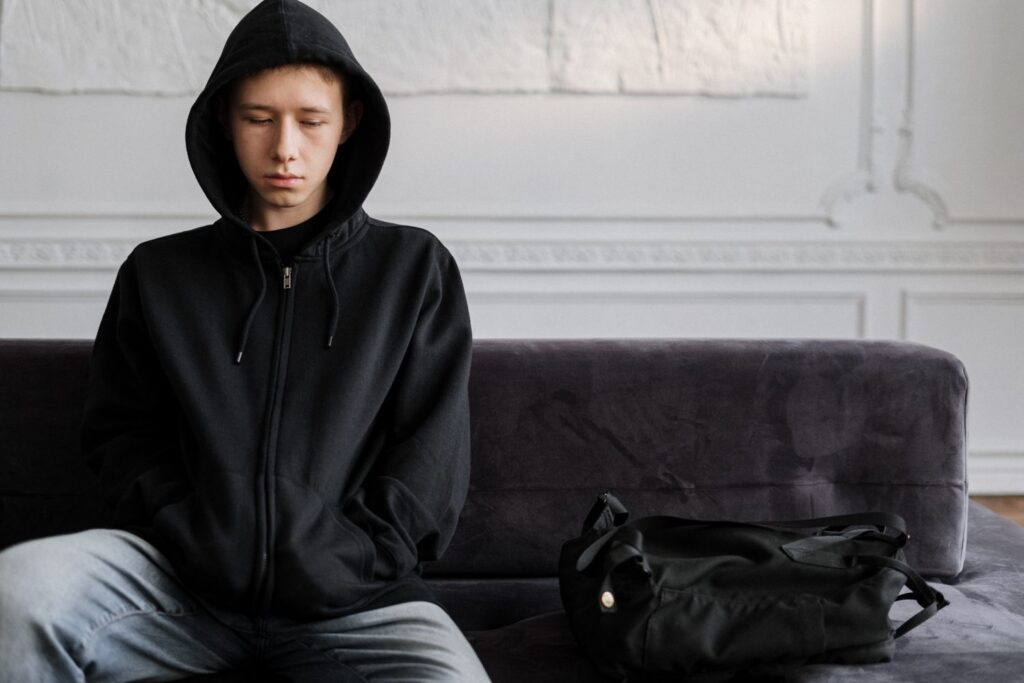Bullying can have a range of short and long term effects. These can affect the victim and the bully. Lots of school-age children will be familiar with the saying STOP when it comes to bullying (Several Times On Purpose). This helps children understand the difference between someone saying something unkind once, and the seriousness of bullying. Effects of bullying can stay with us from being a child. If we didn’t experience it as a child, would we be able to recognise it as adults? Several Times On Purpose? And would we recognise the effects it has on our adult mental health?
Bullying Statistics
In the news in the past few years, we have seen evidence of the heart-breaking length that children and adults feel they have to go to escape from bullying behaviour. According to studies, in 2016 1.5 million people in the UK reported being bullied, and 19% of these reported it happening every day. 1 in 8 children have suicidal thoughts due to bullying. These statistics are staggering. This happening as children has serious effects on our mental health while the bullying is happening, but alternatively, it can actually come on later in life, when we don’t expect it to.
It isn’t just face to face bullying that can occur at school, work or even places where we go as a hobby. Nowadays it is easier than ever to attack people from behind a screen. Trolling and cyberbullying are becoming more and more common especially with all the different forms of social media that children and adults can access. It is worth noting that cyberbullying is easier to hide so the victim may not ask for help for a longer period of time.
The Effects of Bullying?
Some examples of changes in behaviour can be easy to spot, but others can be harder. If you think someone you love may be being bullied, or even yourself, be sure to look out for these things:
Feelings of shame
Being bullied can make us feel like it is our fault. Our brain finds it hard to understand what is going on and we begin to believe that it is our fault and we deserve what is happening. It can also make us feel embarrassed to tell someone.
Social isolation including school/work avoidance
People can start to withdraw themselves from social situations, especially if the offender is part of that social group. Not joining in with activities and finding excuses to stay at home or in their bedroom is a clear sign something is affecting their mental health.
Sleep disturbance
We all know that sleep is massively important for our mental health and our wellbeing, but if something serious is bothering us and is on our minds, our sleep will be effected and this can then cause other problems with our mental health.
Changes in eating habits
When our mental state has added stress or worry, eating can become an unimportant event. Therefore we may stop eating certain meals, or binge eat comfort food. Comfort eating can be a sign of anxiety and depression.
Low self-esteem
Doubting yourself and your abilities is a sign of depression and anxiety. We do this enough ourselves but imagine someone telling you daily that you are worthless, fat, ugly, no good etc. That just embeds in our minds the negative thoughts we already have about ourselves.
Symptoms of anxiety/depression
Anxiety and depression have a wide range of symptoms. People who suffer from anxiety and/or depression may experience a few or many of these. More information on anxiety and depression can be found on the NHS website.
Long Term Effects of Bullying
As mentioned before, the effects of bullying can occur during the period of the bullying happening, but also after an extended period of time. There have been cases where people’s anxiety and depression are directly linked to their experience of being bullied at school, but they haven’t felt the effects until later on in their life when they are adults. It could be a small trigger that could set the person back to that time, someone making a similar comment to those that were said before, a happy period of their life coming to end, visiting a similar place.
It is important to recognise that these long term effects of bullying are extremely detrimental to our mental health. Childhood bullying has serious effects on both short and long-term health of children. Immediate intervention and long-term follow-ups can help stop some of these effects. It is vitally important that schools, families, and communities work together to understand bullying and its consequences and find ways to decrease, and hopefully eradicate, bullying both in schools and communities, therefore relieving it occurring in adults later in their lives.
The Need To Talk
If someone was to sit down with the bully and openly, honestly and frankly tell them what their actions are doing to that person would that make them stop and think about their behaviour? If the bully was shown what they have caused that person to feel like and do later in their life, would they see it as unacceptable?
All clinicians at Birmingham CBT practice Cognitive Behavioural Therapy, or are Psychologists offering evidence-based interventions and support for a range of issues for both young people and adults. If you would like to book an appointment you can do so on our online booking portal. If you have a question please get in touch via our online contact form or call us on 01865 920077.



